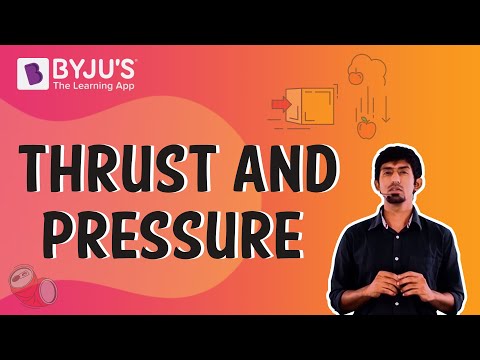Rocket propulsion is the force that is used by the rocket to take off from the ground and into the atmosphere. Rocket propulsion works based on the principle of Newton’s third law of motion. There are various types of rocket propulsion which are based on the state of fuel, and they are:
- Liquid-fuel rocket
- Solid-fuel rocket
- Cold-gas chemical propulsion
- Ion
- Acceleration of Rocket
If a- is the acceleration of the rocket, ve– exhaust velocity, m- the mass of the rocket, Δm– the mass of the ejected gas, Δt– time taken to eject the gas and g- acceleration due to gravity, then, we represent the acceleration of rocket in mathematical form as,
Read More – Rocket Propulsion
Important Questions with Answers
1. How does rocket propulsion take place?
In a rocket engine, fuel and a source of oxygen, called an oxidizer, are mixed and exploded in a combustion chamber. The combustion produces hot exhaust, which is passed through a nozzle to accelerate the flow and produce thrust.
2. Define gravity.
Gravity is nothing but the force by which a planet or other body draws objects toward its centre.
3. Acceleration does not depend on the exhaust velocity, burning of the fuel, and mass of the rocket.
a. True
b. False
Answer – b. False
Explanation – This statement is false because acceleration depends on exhaust velocity, burning of the fuel, and also the mass of the rocket.
4. If the mass of the rocket decreases, acceleration will ________.
a. decrease
b. increase
Answer – b. increase
Explanation – If the mass of the rocket decreases, the acceleration increases greater.
5. If the fuel in the rocket is burned slower, then the acceleration is greater.
a. True
b. False
Answer – b. False
Explanation – This statement is false because when the rocket’s fuel burns faster, the acceleration increases, according to factors that affect it.
6. What is the formula for rocket acceleration?
Acceleration of rocket in mathematical form is,
Where,
a – acceleration of the rocket
ve – exhaust velocity
m – the mass of the rocket
Δm – the mass of the ejected gas
Δt – time is taken to eject the gas
g – acceleration due to gravity
7. What is thrust?
Any fluid (a gas or a liquid) applies an upward force on a body submerged in it, and this force is called thrust.
8. State and explain Newton’s third law of motion.
Newton’s third law of motion states that if one object exerts a force on a second object, the second object simultaneously exerts a force equal in magnitude and opposite in direction to that of the first object.
9. Write a short note on drag?
Drag is nothing but a mechanical force. When objects travel through any fluids (a gas or a liquid), they will undoubtedly encounter resistive forces called drag forces. Drag is a vector quantity because magnitude and direction are needed to define it.
10. Which law is used in rocket propulsion? How does it work?
Rocket propulsion is based on Newton’s third law of motion principle. According to Newton’s third law of motion, every action has an equal and opposite reaction. In the case of rocket propulsion, the principle of action and reaction is fundamental. The generation of thrust by a rocket engine is explained by Newton’s third law of motion. Hot exhaust gas is produced in a rocket engine via fuel combustion with an oxidizer. The hot exhaust gas is accelerated to the rocket’s rear by passing through the rocket nozzle. As a result, a thrusting force is generated on the engine mount.
Practice Questions
1. What factors affect the acceleration of rocket propulsion?
2. What is rocket propulsion?
3. What is acceleration?
4. Explain liquid-fuel rockets.
5. What is the difference between solid-fuel and liquid-fuel rockets?
|
Related Links |
|---|
To learn more about Thrust and Pressure, watch the video below.

Stay tuned to BYJU’S for more exciting questions with solutions. Register for “BYJU’S – The Learning App” as well as for a wide variety of interactive, engaging Physics-related videos.
